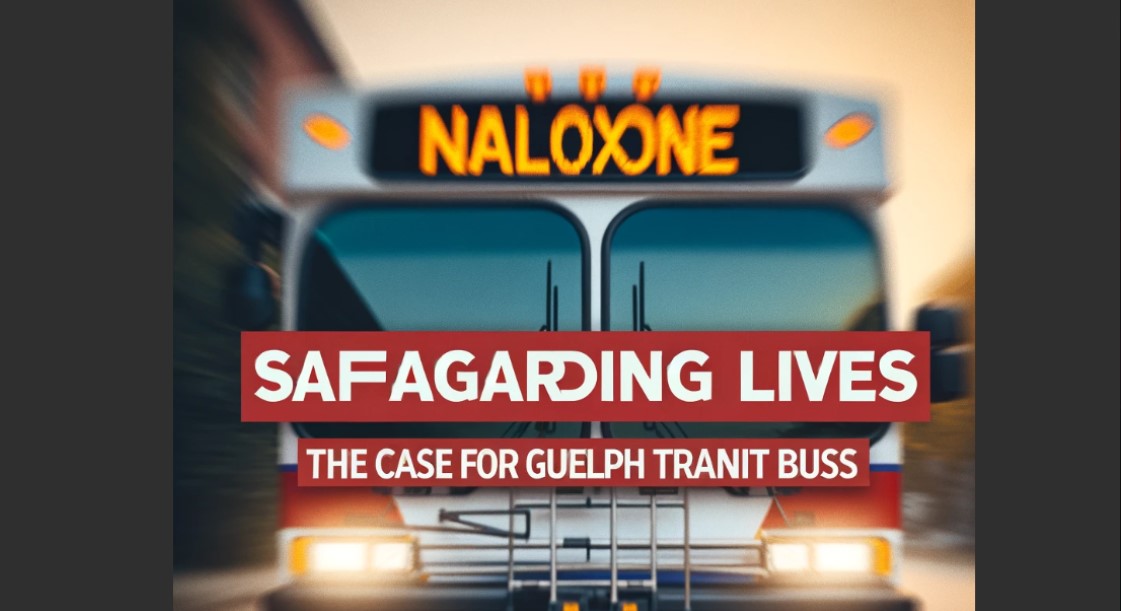In case you missed it, the topic of whether Guelph Transit buses should carry naloxone kits has sparked a discussion, led by City Councillor Erin Caton.
Caton strongly advocates for equipping transit drivers with naloxone kits, emphasizing the potential to save lives. She expressed her views during a recent Wellington Dufferin Guelph Public Health board meeting, highlighting the responsibility to provide life-saving services like naloxone, akin to having epi pens or first aid kits readily available.
Naloxone, available in injectable or nasal forms, can swiftly reverse the effects of opioid poisoning. Dr. Nicola Mercer, the Medical Officer of Health, underlined its critical role during opioid poisoning episodes, where it counteracts opioids’ impact on breathing, potentially preventing fatalities or brain damage.
Statistics show a concerning rise in drug poisonings, with a 17% increase last year in Guelph and Wellington County, resulting in 27 suspected drug poisoning deaths. Additionally, there were 439 suspected drug-related incidents, with 40% involving fentanyl.
Despite the urgency reflected in these numbers, Guelph transit drivers presently do not carry naloxone kits. Stephan Dewar, the city spokesperson and chief of Guelph Wellington Paramedic Service, clarified that the city relies on prompt paramedic response times for medical emergencies, including administering naloxone when necessary.
Caton acknowledged the valuable role of paramedics but noted the potential delay in their response, especially on city buses. She advocated for an additional safety measure by having naloxone readily available on buses, enhancing emergency response capabilities.
While the city’s current stance prioritizes transit drivers’ focus on safe vehicle operation and timely emergency assistance calls, Caton intends to explore advocating for naloxone availability on buses. This proposal could be brought forward to city council for future consideration.
Wellington-Dufferin-Guelph Public Health has actively distributed naloxone kits since 2017, distributing over 3,000 kits in 2023 alone. These kits are accessible at WDGPH offices in Guelph, Fergus, and Orangeville, emphasizing their safety for all ages and medical conditions, including pregnancy and lactation.
Dr. Matthew Tenenbaum, during a recent WDGPH board meeting, reiterated the safety and simplicity of naloxone administration, encouraging training but emphasizing its minimal risk even if accidentally administered to non-overdosing individuals.
In conclusion, the discussion surrounding naloxone on Guelph Transit buses underscores the importance of proactive measures to safeguard public health, highlighting the potential impact of timely interventions in critical situations.


